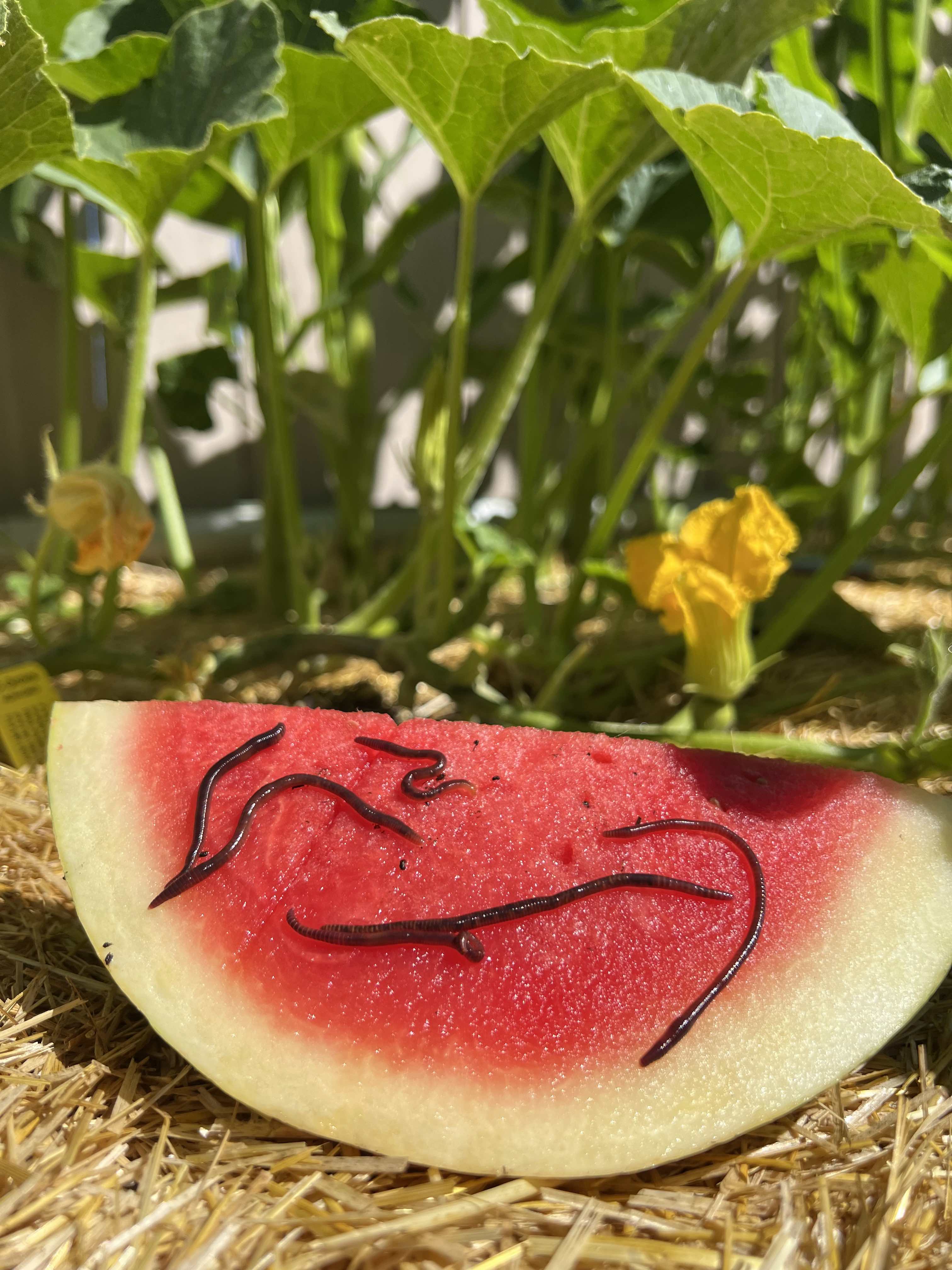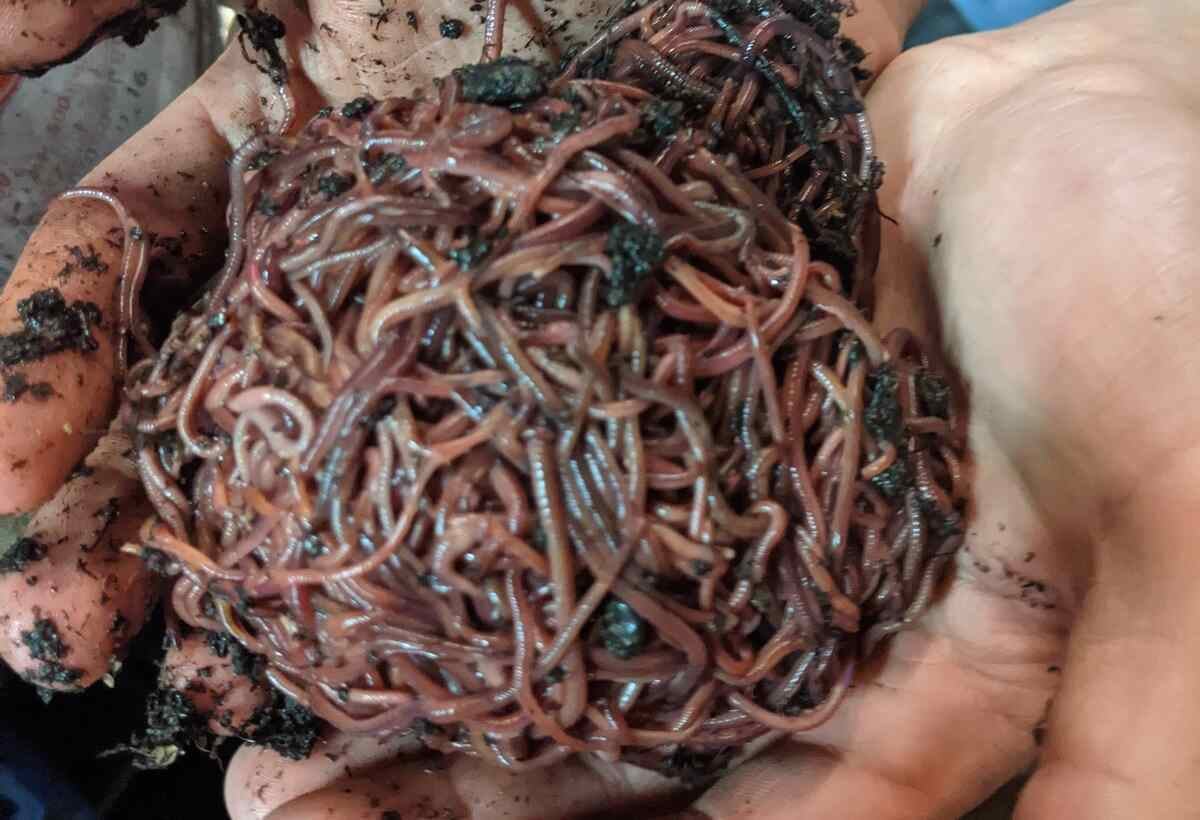Purchase Red Wiggler Worms - Perfect for Composting and Horticulture
Purchase Red Wiggler Worms - Perfect for Composting and Horticulture
Blog Article
Red Wiggler Worms Demystified: Opening the Tricks of Vermiculture for Greener Living and Nutrient-Rich Soil
In the realm of lasting practices for improving soil quality and advertising eco-conscious living, red wiggler worms play an essential yet commonly neglected duty. Red Wiggler Worms. Comprehending the details of caring for these worms, enhancing their setting, and harnessing their spreadings can lead to a greener way of living and much healthier soil for plants to grow.
The Role of Red Wiggler Worms
Red Wiggler worms play a crucial duty in composting systems by effectively breaking down natural matter into nutrient-rich spreadings. These ravenous eaters consume a range of natural materials, such as kitchen area scraps, yard waste, and paper products. As they feed, the worms' gastrointestinal procedures break down the raw material into a penalty, dark, and nutrient-dense product called worm spreadings or vermicompost.
The castings created by Red Wiggler worms are extremely helpful for dirt health and plant growth. They are rich in necessary nutrients like phosphorus, potassium, and nitrogen, which are important for supporting healthy and balanced plant advancement. Furthermore, worm spreadings have valuable microorganisms and enzymes that assist enhance soil structure, increase water retention, and enhance nutrient uptake by plants.
Benefits of Vermicomposting

In addition, vermicompost, the nutrient-rich end item of vermicomposting, offers as an excellent natural fertilizer and soil conditioner. It enhances soil framework, improves soil aeration, and raises soil dampness retention. These properties add to much healthier plants with stronger root systems and much better resistance to conditions and pests. Vermicompost likewise enhances the soil with necessary nutrients like phosphorus, nitrogen, and potassium, promoting plant development and total soil fertility.
Furthermore, vermicomposting assistances lasting horticulture practices by giving a chemical-free and natural choice to artificial fertilizers. Red Wiggler Worms. This ecologically pleasant strategy not only improves the dirt yet likewise helps in reducing reliance on damaging chemicals, promoting a greener and a lot more sustainable means of gardening
Establishing a Worm Bin
When establishing a worm bin for vermicomposting, proper arrangement is vital to guarantee the success of the composting process. The very first action in establishing up a worm bin is choosing an ideal container.
After including the bedding, present the red wiggler worms to the container. It is recommended to begin with a handful of worms and slowly enhance as they increase. The worms must then be given with food scraps such as vegetables and fruit peels, coffee grounds, and eggshells. It is necessary to prevent adding meat, milk, oily, or salty foods to stop drawing in insects and producing undesirable odors.
Regularly check the dampness levels and temperature level in the worm bin to make certain ideal conditions for the worms. With appropriate arrangement and maintenance, the worm container will efficiently transform natural waste right into nutrient-rich compost for your plants and garden.
Collecting Worm Castings
To efficiently gather nutrient-rich worm spreadings from your vermicomposting system, an organized harvesting approach is vital. When it comes time to gather the worm spreadings, there are a couple of key steps to follow to guarantee a successful procedure.

Troubleshooting Common Issues
Determining and attending to typical challenges that may arise throughout click here now the vermicomposting procedure is critical for keeping a healthy and balanced and efficient worm bin. One usual problem that vermicomposters encounter is overfeeding. Adding excess food scraps can bring about a his response build-up of wetness and acidity in the worm bin, possibly hurting the worms. To avoid this, feed the worms in small amounts, making certain that the food scraps are adequately damaged down prior to including extra. One more issue is undesirable smells originating from the worm bin. Foul scents suggest anaerobic conditions, typically brought on by overwatering or insufficient ventilation. To remedy this, adjust the wetness levels by including dry bed linens materials like shredded paper or cardboard and boost aeration by transforming the bed linen frequently.
In addition, if the worm populace is decreasing or the worms show up harmful, maybe as a result of environmental stressors such as severe temperature levels or pH levels. Keeping an eye on these variables and making needed modifications is important for the health of the worms. By repairing these typical problems immediately, vermicomposters can ensure a smooth and effective vermicomposting procedure while maintaining a thriving worm population.

Verdict
In verdict, red wiggler worms play a vital duty in vermiculture by damaging down organic matter right into nutrient-rich soil. Setting up a worm container is vital for effective vermiculture, and harvesting worm spreadings provides important garden compost for horticulture.
As they feed, the worms' digestive processes damage down the natural issue into a fine, dark, and nutrient-dense material recognized as worm castings or vermicompost.
The spreadings created by Red Wiggler worms are extremely valuable for dirt health and plant development. Adding excess food scraps can lead to a buildup of dampness and acidity in the worm container, possibly damaging the worms.In addition, if the worm populace is decreasing or the worms show up undesirable, it can be due to ecological stressors such as extreme temperatures or pH levels. read the article Setting up a worm container is essential for effective vermiculture, and gathering worm spreadings supplies beneficial compost for gardening.
Report this page